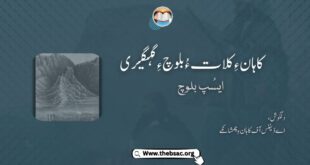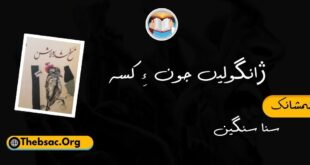Writers in Politics: A Re-engagement With Issues of Literature and Society
By Ngugi Wa Thiong’o
Review by: Shama Baloch
Baloch Students Action Committee
Ngugi wa Thiong’o born in January 5, 1938, Limuru, Kenya. He is a Kenyan writer where his first most popular novel was Weep Not, Child (1964) in English.
As he became sensitized to the effects of colonialism in Africa, Ngugi adopted his traditional name and he rejected Christianity, and changed his original name in 1976 from James Ngugi, which he saw as a sign of colonialism, to Ngugi wa Thong’o
Some notable work of Ngougi are
“A Grain of Wheat”
“Birth of a Dream Weaver: A Writer’s Awakening”
“Devil on the Cross”
“Dreams in a Time of War”
“I Will Marry When I Want”
“In the House of the Interpreter”
“Matigari”
“Petals of Blood”
“The Black Hermit”
“The River Between”
“The Trial of Dedan Kimathi”
“Weep Not, Child”
“Wizard of the Crow”
Ngugi presented his ideas on literature, culture, and politics in numerous essays and lectures, which were collected in Homecoming (1972), Writers in Politics (1981), Barrel of a Pen (1983), Moving the Centre (1993), and Penpoints, Gunpoints, and Dreams (1998). In Decolonizing the Mind: The Politics of Language in African Literature (1986), Ngugi argued for African-language literature as the only authentic voice for Africans.
Writers in Politics
A colonial or imperial power always wants to dominate itself on the colonized people never mind it does it through different tactics or methods by making permanent imperialist domination. the writer further added that a colonial power For the permanent siege oppression firstly the education system of Kenya is stormed. he imposes his literature on colonized people where the colonizer decides what to be taught, who will taught. A child of Kenya is being taught literature of Europe instead of Africa which means a child is being confronted with European literature which is total distortion and misplacement of the value of National Liberation making us continue to be slave of imperialism. Another powerful instrument of oppression is cultural imperialism it distorts people vision of history and reality distortion through religious means as images of white gods in the heaven and black devils due to black sins in hell producing self-hatred.
Moreover for its permanent imperialist domination imposes his language on the oppressed colonized people the English language being taught in schools theatres and other places. To choose a language is to choose a world “West Indian thinker” if you write in foreign language for example French you can only reach through French speaking audience or English etc. if a Kenyan writer writes in English no matter how radical he is or content of the literature it cannot directly talk or reach to the workers and peasants of the Kenya. A writer must know for whom I write, who is my audience. On the other hand Kenyan languages were avoided. The writer says the teaching of English is a way to safeguarding European interests in Kenya and the Kenya will have the same view and culture as colonial master.
Furthermore it talks about the economy that the economy of Kenya produced ended in developing western world It works like chemical catalyst in expropriation of Kenyans wealth. As he says in this condition we can never develop. Similarly economics is the system of production, control and distribution of wealth. As Engels once said mankind first of all eat drink, shelter and clothing before it can pursue politics science arts religion and we must know how our economy is being controlled distributed or produced because under foreign economic domination no people can develop a meaningful national culture. in addition it says literature is part of culture likely reflection of material reality in a culture dominated by foreigners will make people look through distorted eyeglasses of foreigners they will be evaluating their ground realities in lens of a foreigner they never wish the colonized people to live in prosperity and develop. Correspondingly no country will ever develop and gain independence when the economy and culture are dominated by foreigner
In a colonized world Two community exists two opposing consciousness exists two opposing trends exist the robbed and robber and the robbing community controls the mind consciousness of the working laboring majority the producers of wealth and instil images of defeat, unsureness, division, inferiority complex, helplessness, fawning abject humility, slavishness in the minds of robbed they’ll be able to rob with no impunity because power to control the state with psychological and mental coercion conditioning. The Robbing class to see things in their perception for them reality is final static divinely willed and cannot be changed but for the robbed the present condition is not final must change and must be changed.
So the Literature is a Very crucial reflection of society literature thus contains people images of themselves in history and of their places in the universe. So from the book of Mao Mao unchained Ngougi cited some of the paragraph that Kairuki felt the need to arm himself with the weapon of literacy with the power of reading and writing but Kairuki literacy weapon was for the struggle of their Kenyan people but he strongly denounced the education of colonial school where African becomes screener opportunistic collaborators with the enemy and setting them apart from the struggle. Literature and writers cannot be exempted from the battlefield. The poet and politicians have many things in common as Agostinho Neto is an outstanding poet and a politician. For him the gun, the pen and the platform have served the same ends: the total liberation of Angola
In addition, an oppressed nation must resist and struggle against foreign domination albeit systematic and scientific way where conscious determination of the struggle demands the conscious creation of system of struggle an imperial always wants to maintain its domination through the literature, culture, economy. Colonialism and imperialism can only be defeated by creating system and institutions based on relevance ideology. The literature should be relevant to struggle, literature about imperialism colonialism For the schools that should develop critical mentality students about oppressions end exploitation literature of fight for freedom no corner should be allowed to choose their vital decision study of culture as Kenyan writer we have to “ return to the roots of our being in the languages and culture and heroic histories of the Kenyan people can we rise up to the challenge of helping in the creation of a Kenyan patriotic national literature and culture that will be the envy of many foreigners and pride of Kenyans “ the words of Shaban Robert”
 BSAC Struggling For Knowledge And Unity
BSAC Struggling For Knowledge And Unity 



